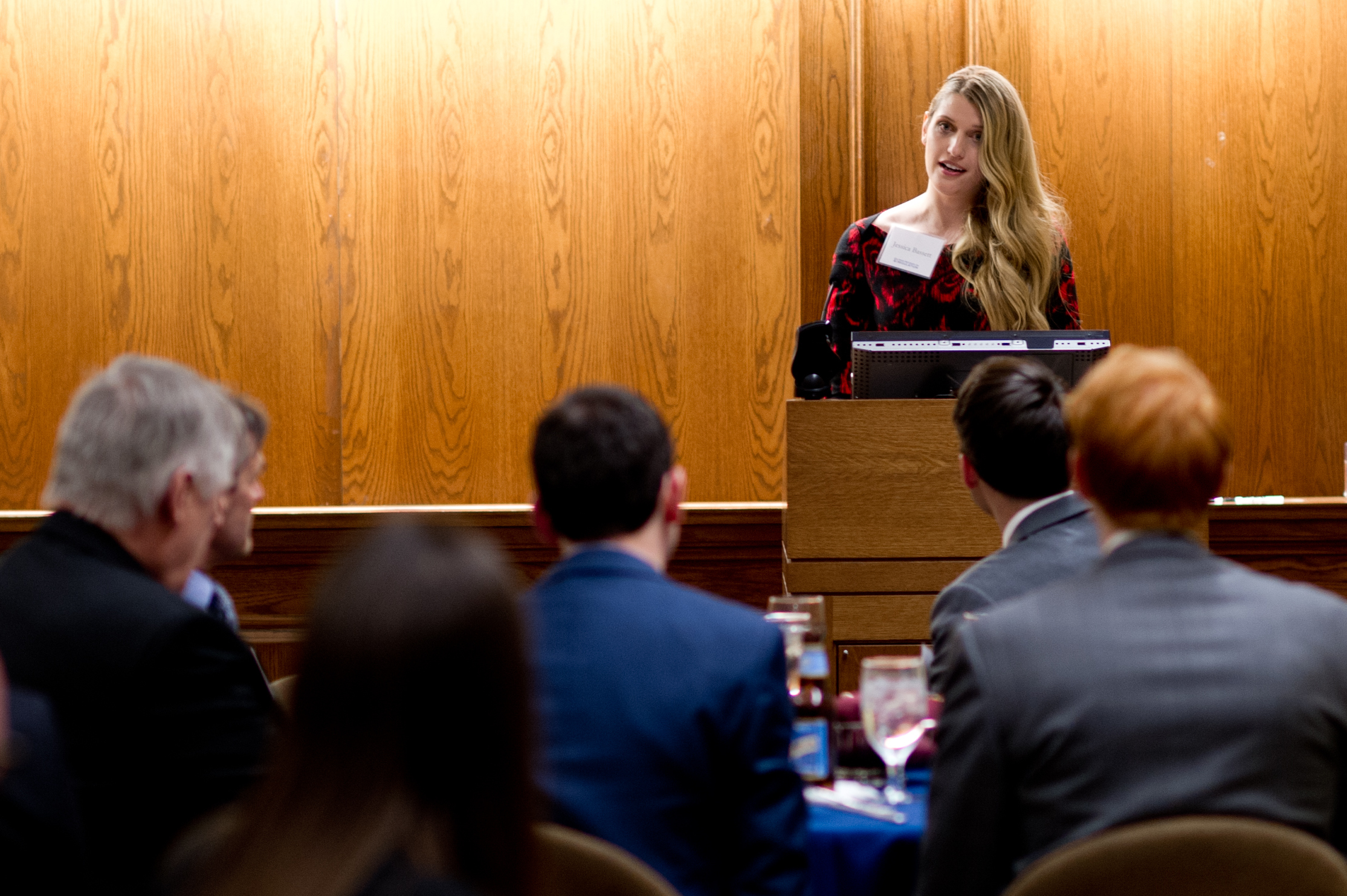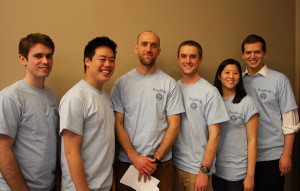
Past and present editors share how RegBlog has shaped their legal education—and careers.
RegBlog’s official launch party, held five years ago this month, had been long in the making.
For months before that event, my professor and faculty advisor, Cary Coglianese, and I had countless discussions and debates about how to create a regulatory publication that would meaningfully contribute to public discourse while teaching practical skills and knowledge to students who participated in the publication’s development. We had also developed an organizational structure, recruited students from Penn Law and other graduate schools at the University of Pennsylvania, and started working on articles on a range of regulatory issues.
By April 2011, we were ready to unveil our new project to the world with a series of essays featured on a specially designed website that befitted the magazine-style publication, which has ever since been RegBlog’s signature format.
Since its launch in 2011, RegBlog has evolved to become part of the fabric of Penn Law. It is now offered as a seminar each semester, regularly hosts guest speakers, and publishes informative work by leading scholars and practitioners, as well as students, every single weekday. It also provides the public with reliable, authoritative information on regulatory actions that can have a profound impact on people’s lives.
In anticipation of RegBlog’s fifth year anniversary, I spoke to some of its current and former editors to gather their thoughts on contributing to this unique publication.
Not surprisingly, the most common theme I heard was gratitude for the personalized attention that students received from Professor Coglianese, the publication’s faculty advisor. Says James Rathz, the current communications director and editor, “my work quality has improved leaps and bounds thanks to Professor Coglianese.” A current editor, Joel Dankwa, explains that “RegBlog provides a unique opportunity for law students” to get extensive feedback on their writing.
According to Series Editor Sara Bodnar, RegBlog has had a “transformative impact” on her writing.
Students find these writing skills useful long after they graduate. “Writing and editing for such a high level publication really honed my skills for writing succinctly,” adds Jean Yin Crews, RegBlog’s first communications editor and now a real estate associate at the law firm Venable. “As a transactional attorney, I draft document provisions not just to be understood, but to also avoid being misunderstood.”
Kim Kirschenbaum, RegBlog’s new editor in chief, also spoke about how working on RegBlog has helped her hone key legal skills. “Strong writing skills, an ability to break complex concepts down into simple and succinct terms, a keen eye for detail, an obsession with precision and accuracy, and the ability to stay composed in a race against the clock are critical—not only for writing a great RegBlog post, but also for being a great lawyer,” says Kirschenbaum.
RegBlog alumni emphasize the similarity between the collaborative process that fuels RegBlog and their current work environment in practice.
“I think working with a team of writers and going through the comment and revision process was very good preparation for my career,” says Max Blum, an editor from 2013-2014 and now an associate at the firm Quinn Emanuel. “Writing with the benefit of team feedback—which is what I do now when drafting motions—is different from writing on your own.”

RegBlog’s founding editorial team (L-R): Sean Moloney, Samson Chen, Sam Saylor, Steve Gillard, Jean Yin Crews, and Jonathan Mincer.
Of course, the subject matter that RegBlog covers—regulation—is also directly relevant to a wide range of professional endeavors. Students can choose which topics to write about. This provides opportunities to learn about a broad range of topics—particularly for editors, who often work on student pieces covering topics that they previously knew little or nothing about. It also affords students an opportunity to develop expertise in a particular subject area.
“I love working on RegBlog because it allows me to pursue my own interests in depth,” says Rathz.
Lauren-Kelly Greenbacker, managing editor from 2013-2014, similarly finds that her RegBlog experience prepared her for success as a corporate associate at Paul Hastings.
“By giving me the opportunity to ‘specialize’ in financial regulatory issues as a law student, RegBlog allowed me to follow legal developments that now have significant impacts on my practice as a banking regulation and payment systems attorney,” says Greenbacker.
Participating in RegBlog’s production, and working with Professor Coglianese, has helped students develop their careers even more directly. Christina Reichert, the communications editor from 2013-2014 and now a policy counsel for the Climate and Energy Program at Duke University’s Nicholas Institute for Environmental Policy Solutions, says she feels fortunate to have developed a close working relationship with a professor who is eager to support students professionally as they develop their career goals.
Additionally, managing and writing essays for RegBlog has provided students with written work product, leadership skills, and teamwork experience to highlight to prospective employers.
“My future manager was interested in my environmental science background, but seemed most interested in my experience at RegBlog,” says Steve Gillard, who was pursuing a Master of Environmental Studies when he served as one of RegBlog’s first executive editors. Gillard now works at Eastern Research Group, where he supports various federal regulatory agencies, including the U.S. Department of Labor and the Occupational Safety and Health Administration, in rulemaking and other endeavors.
“I actually pulled up RegBlog on the computer during the interview,” recalls Gillard. “I have no doubt that my experience at RegBlog gave me an advantage over other applicants.”
But the RegBlog experience goes beyond practical skill-building and professional development; it has also brightened students’ law school experiences.
Kirschenbaum says that “contributing to RegBlog has been one of the most rewarding—if not the most rewarding—experiences I’ve had here at Penn.”
Christian Latham, an editor from 2014-2015 and now an associate at Jones Day, says he enjoyed the “opportunity to work alongside truly outstanding peer leaders” and to make “important, meaningful friendships.”
RegBlog also provides students with an opportunity to contribute meaningfully to public knowledge and discourse while they are still in law school.
“I cannot fully describe the feeling I got when I first saw my work on a site that many high-ranking professionals visit daily,” says Reichert. “But, it was exhilarating.”
“I am proud to contribute to RegBlog’s mission,” adds Bodnar. “In a world where regulation is intertwined with politics, it is critical that readers have a non-partisan source that provides an informed and neutral perspective on regulatory issues.”
A true innovation in legal education, RegBlog has already become a leading source of authoritative, timely information on regulation. RegBlog’s success is beyond anything I could have imagined five years ago. I cannot wait to see what the next five years will bring.
This essay is part of The Regulatory Review’s sixteen-part series, RegBlog@5.




